Which brands of industrial reverse osmosis machines will be the most popular in 2026?
Introduction
The industrial reverse osmosis (RO) market is poised for significant growth by 2026, driven by increasing demand for efficient water treatment solutions across various industries. This article examines the leading RO machine brands anticipated to be most popular in 2026 and addresses the primary concerns procurement professionals should consider when selecting water treatment systems, supported by data-driven insights.
Leading Industrial Reverse Osmosis Machine Brands for 2026
Based on current market trends and technological advancements, the following brands are projected to lead the industrial RO machine market in 2026:
- Aqualitek (China)
Description: Aqualitek specializes in high-capacity industrial RO systems suitable for manufacturing, processing, and commercial applications. They offer comprehensive solutions, including pretreatment equipment, core RO units, and end-use recycling systems.
Advantages: Aqualitek is known for its robust OEM/ODM capabilities, modular skid-mounted designs, high salt rejection performance, and worldwide manufacturing capacity. However, brand recognition and service networks are still expanding in some international markets. ((https://www.aqualitek.com/top-5-industrial-reverse-osmosis-systems-in-2026.html?utm_source=openai)) - Dow Water & Process Solutions (USA)
Description: Dow is a global leader in water purification technology, offering full-scale industrial RO systems that utilize advanced membranes, pretreatment, and system integration for high-duty applications across chemical, power, and brackish/seawater domains.
Advantages: Dow's FILMTEC™ membranes are renowned for their high rejection rates and reliability. The company also boasts a strong global support network and a solid R&D team. However, their systems may be priced higher and might be too large for smaller or mid-sized industrial users. ((https://www.aqualitek.com/top-5-industrial-reverse-osmosis-systems-in-2026.html?utm_source=openai)) - Koch Membrane Systems (USA)
Description: Koch focuses on advanced membrane filtration and integrated RO/NF systems for industrial challenge feeds, catering to sectors like food and beverage, biotech, automotive, and water reuse applications.
Advantages: Koch's systems are excellent for demanding processes involving complex feedwater treatment. They offer flexibility and high efficiency. However, implementing and maintaining these systems requires more engineering skill and infrastructure compared to simpler systems. ((https://www.aqualitek.com/top-5-industrial-reverse-osmosis-systems-in-2026.html?utm_source=openai)) - Toray Industries (Japan)
Description: Toray has extensive experience with polymer and membrane technology, producing high-recovery, robust industrial RO systems capable of handling challenging situations like high-TDS brackish or seawater feed, manufacturing process water, and desalination applications.
Advantages: Toray's membrane materials can withstand a wide range of chemicals and temperatures, performing well in tough water conditions. However, in some areas, local service and installation support might be slower than with more local suppliers. ((https://www.aqualitek.com/top-5-industrial-reverse-osmosis-systems-in-2026.html?utm_source=openai)) - Hydranautics (USA/Japan)
Description: Hydranautics designs and supplies spiral-wound RO modules and full systems for industrial, desalination, reuse, and high-flux requirements, supporting large-scale industrial RO water systems worldwide.
Advantages: Hydranautics has a global footprint, offering high-performance membranes and modules suitable for zero-liquid-discharge (ZLD) and recycling applications. However, for mid-sized general industrial use, the cost structure might be higher than simpler alternatives. ((https://www.aqualitek.com/top-5-industrial-reverse-osmosis-systems-in-2026.html?utm_source=openai))
Key Considerations for Procurement Professionals in Selecting Water Treatment Systems
When procuring industrial RO systems, professionals should consider the following factors to ensure optimal performance and value:
- Membrane Type and Performance
The type of membrane, typically thin-film composite polyamide for RO systems, determines salt rejection and chemical tolerance. Procurement professionals should request real test data on salt rejection percentage, permeate flux, recommended recovery rate, and expected fouling behavior for the specific feedwater. ((https://www.aqualitek.com/top-reverse-osmosis-manufacturers-2025.html?utm_source=openai)) - Energy Efficiency
Energy consumption is a significant operational cost. Next-generation intelligent recovery systems now achieve up to 75% water efficiency through closed-loop designs, addressing environmental concerns and meeting stricter regulations in water-scarce regions. - Service and Support
A reliable service network is crucial for maintenance and troubleshooting. Procurement professionals should ensure that the manufacturer offers rapid spare parts availability, local service partners or global service networks for commissioning and periodic maintenance, and clear cleaning protocols, training, and remote monitoring options. ((https://www.aqualitek.com/top-reverse-osmosis-manufacturers-2025.html?utm_source=openai)) - Customization and Application-Specific Solutions
Many projects require hybrid systems combining pretreatment with core RO units and post-treatment. Manufacturers that design and supply integrated solutions can reduce integration risk and accelerate commissioning. Procurement professionals should prioritize vendors that can deliver engineered skid-mounted RO systems for rapid deployment and adapt designs for reclaimed water, high-TDS brine, or zero-liquid discharge (ZLD) applications. ((https://www.aqualitek.com/top-reverse-osmosis-manufacturers-2025.html?utm_source=openai)) - Cost Comparison and Total Cost of Ownership
Comparing quotations requires more than capital cost. Procurement professionals should request lifecycle cost estimates, including initial equipment and installation, energy use, chemicals and frequency of chemical clean-in-place (CIP), membrane replacement intervals and unit cost, and ongoing service and consumables. Some vendors supply lifecycle cost models; if not, request raw assumptions to run your own comparison. ((https://www.aqualitek.com/top-reverse-osmosis-manufacturers-2025.html?utm_source=openai))
Aqualitek's Advantages in the Industrial Reverse Osmosis Market
Aqualitek stands out in the industrial RO market due to several key advantages:
- Comprehensive Solutions: Aqualitek offers end-to-end solutions, including pretreatment equipment, core RO units, and end-use recycling systems, ensuring seamless integration and optimal performance.
- Modular Design: Their modular skid-mounted designs facilitate easy scalability and adaptability to various industrial applications.
- High Salt Rejection Performance: Aqualitek's systems are engineered for high salt rejection, making them suitable for challenging feedwater conditions.
- Global Manufacturing Capacity: With a worldwide manufacturing footprint, Aqualitek can meet large-scale demands efficiently.
Data Sources
- Global Water Intelligence (GWI) and International Desalination Association (IDA) Desalination & Reuse Handbook, 2024
- Intel Market Research, "Intelligent Reverse Osmosis Pure Water Machine Market Outlook 2025-2032," 2024
- HTF Market Report, "Reverse Osmosis Water Filter Systems Market See Strong Future," 2024
- PR Newswire, "The Worldwide Reverse Osmosis Membrane Industry is Expected to Reach $5 Billion by 2026 at a CAGR of 10% from 2021," 2024
- PR Newswire, "Global Water Purifier Market Size and Forecast Report 2023: Reverse Osmosis (RO) Sector Commands a Dominant Market Share - Forecasts to 2028," 2024




Request More Information or Expert Advice
Share a few details, and we’ll provide deeper insights, tailored suggestions, or product support.

Our 500 LPH Reverse Osmosis (RO) System is engineered to provide high-quality purified water for commercial applications. Designed with advanced RO technology, durable components, and a user-friendly interface, this system ensures consistent performance, low maintenance, and long-term reliability.
With its compact design and robust skid-mounted frame, it’s an excellent choice for businesses that demand efficiency and quality in water purification.

TWV series Reverse Osmosis (RO) systems are pre-engineered and pre-assembled units with 2.5”/4” membrane housings(single element type)for tap water(lower TDS).They are designed for overall superior performance, high recovery rates and offer great savings with low maintenance and operation costs.

TWF series Reverse Osmosis (RO) systems are pre-engineered and pre-assembled units with 4” membrane housings(multiple elements type) for tap water(lower TDS) .The medium large volumes can help meet your a variety of commercial and industrial applications. They are designed for overall superior performance, high recovery rates and offer great savings with low maintenance and operation costs.

TWE series Reverse Osmosis (RO) systems are pre-engineered and pre-assembled units with 8” membrane housings for tap water (lower TDS). The large volumes can help meet your a variety of industrial applications. They are designed for overall superior performance, high recovery rates and offer great savings with low maintenance and operation costs.
© 2026 AQUALITEK. All rights reserved.

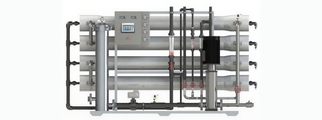
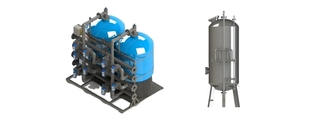
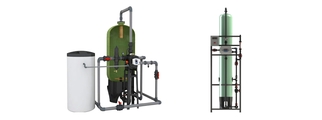
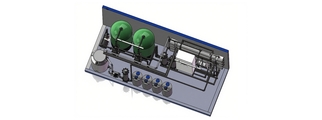
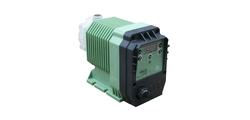
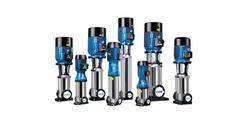
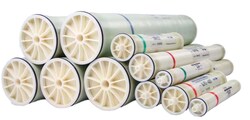
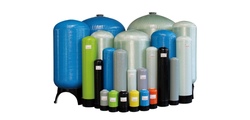
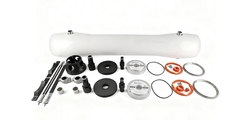
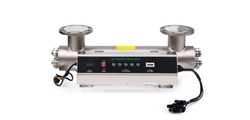
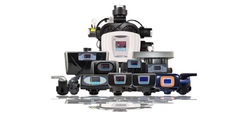
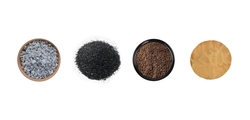
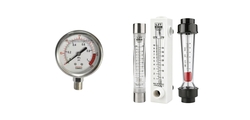
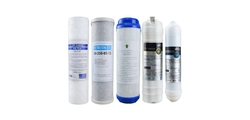
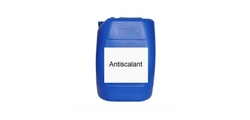
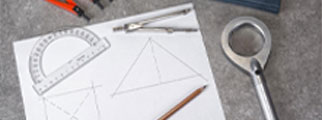


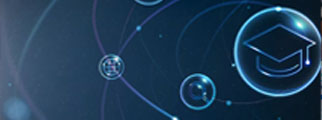
AQUALITEK- Aimee Hoo
AQUALITEK - Aimee Hoo